
Sedation Dentistry – Duncanville, TX
A Relaxing Appointment Every Time
Most kids have short attention spans and trouble sitting still for lengthy procedures. Children, like adults, may also experience dental anxiety. Dr. Donna Barefield and our pediatric dental team offer sedation dentistry to promote a safe, soothing, and successful dental care experience. Whether your child needs help with their routine appointments or requires more extensive care, we can use sedation to make any trip to the dentist a stress-free one for both parents and children alike. To learn more about your options for sedation dentistry in Duncanville, TX, contact us today.

Why Choose Barefield Pediatric Dentistry for Sedation Dentistry?
- Team led by multiple board-certified pediatric dentists
- Sedation available for any procedure
- Friendly team who is dedicated to patient comfort
What is Sedation Dentistry?

Sedation dentistry is a collection of techniques designed to make it easier for patients to receive their much-needed care. It can be used to effectively reduce dental phobia, help a patient relax, prevent a sensitive gag reflex, and make it more comfortable for children to sit still for an entire appointment. It is particularly useful for helping children with special needs.
How We Perform Dental Sedation

The first step to figuring out what kind of sedation would best benefit your child is to give them a brief exam. We’ll also ask you about their dental and health history, taking particular note of any medications they are taking. Once you and their dentist have agreed on a certain type of sedation, you’ll be given a number of pre-procedure instructions to ensure the process goes as smoothly as possible. This may involve having your child not eat or drink in the hours before their appointment to reduce any possible nausea afterward.
Oral Conscious Sedation Dentistry
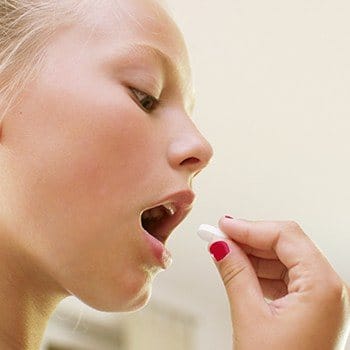
Children who meet our guidelines for safety may be considered for oral sedation. One hour after the sedative is administered (usually as a liquid for small children) and a state of relaxation is achieved, we will attempt to perform the scheduled dental treatment. Your child will likely remain awake and be able to respond to basic commands, but many end up falling asleep as well. They likely will have little to no memory of their visit afterward, and they should feel completely normal by the next morning.
What is Oral Conscious Sedation?

Oral conscious sedation is a form of treatment that requires your child to take a prescribed pill to help keep them relaxed while undergoing one or more dental procedures. It is generally used for those who have moderate dental anxiety or require lengthier treatments to be performed in a single appointment.
How Does Oral Conscious Sedation Work?
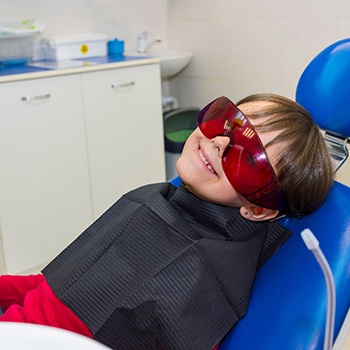
Dr. Barefield will prescribe a specific pill medication that your child will need to take before their appointment. Once you arrive, they will likely be more comfortable and relaxed, making the process of performing treatment easier for both them and our dental team. Throughout the appointment, our dental team will remain focused on your child’s safety and well-being, ensuring they remain comfortable at all times.
The sedation will not cause your child to be fully sedated but instead will lead them to feel sleepy. However, we will be able to easily wake them when it’s necessary that they respond to our dental cues.
Once the procedure is complete, you will need to take your child home to allow them to rest, as the medication will take time to dissipate (typically a few hours).
Is Your Child a Good Candidate for Oral Conscious Sedation?

In most cases, children can receive oral conscious sedation without experiencing any complications or concerns; however, a thorough discussion of their overall health and medical history is required. In certain instances, your child may not be suitable for this type of sedation, especially if they are taking certain medications or have particular health conditions (i.e., respiratory illness or allergies to sedation).
The most common reasons a child might receive oral conscious sedation, though, is if they:
- Have past dental trauma
- Struggle to sit still for prolonged periods
- Have a strong or sensitive gag reflex
- Dislike needles
- Have difficulty with nitrous oxide sedation
- Need multiple dental treatments in one appointment
Nitrous Oxide Sedation
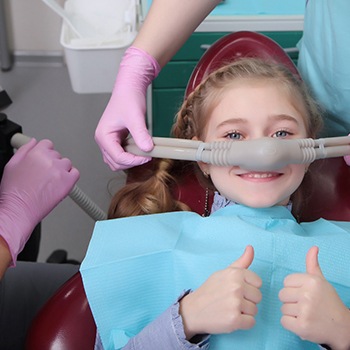
It’s pretty common to deal with mild dental anxiety. After all, as many as 36% of Americans fear dental procedures. However, your child doesn’t have to bear this issue in silence. They could always get nitrous oxide sedation as a solution. With this dental service, Barefield Pediatric Dentistry will calm your child for their treatment. Our team will even explain its core features. So, just keep reading or call our office for details.
Who is a Good Candidate for Nitrous Oxide?

So long as they’re fairly healthy, nearly any child can qualify for nitrous oxide. There aren’t harsh restrictions on who gets the sedative. Still, some kids benefit more from this option than others. The best nitrous oxide candidates usually have one (or more) of the following:
- Overstimulation at the dentist’s office
- Difficulties with numbing agents
- Mild to moderate dental anxiety
- Phobias regarding needles
- Severe tooth sensitivity
- A hard time sitting still
- A strong gag reflex
At the same time, note that some patients aren’t suited for nitrous oxide. A child may need an alternative if they have sinus congestion. Similarly, a respiratory disease may keep them from breathing the gas well. This difficulty would make the sedation less effective.
How Does Nitrous Oxide Work?
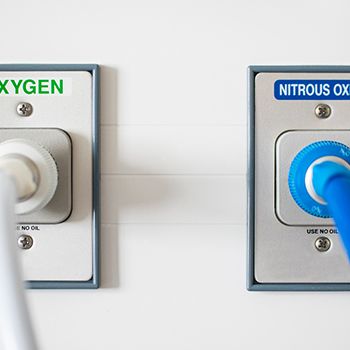
Overall, it’s not hard to administer nitrous oxide. Setting up the process only takes a few minutes at most. From there, the dentist and their team are free to treat your relaxed child.
With nitrous oxide sedation, your child simply inhales nitrous oxide – better known as “laughing gas.” This sedative is received through a nose mask placed before treatment. As the procedure continues, dental staff will monitor your child to ensure his or her safety.
After breathing the gas for a few minutes, your child will feel the effects of nitrous oxide. These usually include light-headedness and mild euphoria. (That said, some patients report having tingly or heavy limbs.) Whatever the specifics, the gas will ensure your child feels calm and at ease. It won’t put them to sleep, though; your youngster should be alert enough to respond to instructions.
Aftercare for Nitrous Oxide
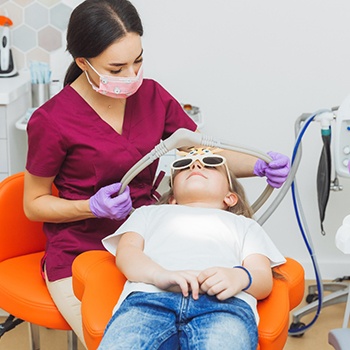
Unlike other sedatives, nitrous oxide doesn’t involve much aftercare. Its effects quickly fade once you stop breathing it. Of course, there are a few things you should remember.
Firstly, nitrous oxide needs a few minutes to leave your body. You should wait in our office during that time. (That way, you’ll feel fine before you make a big decision.) If you try to drive before “laughing gas” exits your body, you may suffer an accident.
Next, nitrous oxide doesn’t have long-term side effects. You’ll be well enough to resume normal living once it leaves your body. In other words, you could easily drive yourself home or return to your workplace the same day.
Lastly, make sure to follow your dentist’s specific guidance. Some offices offer treatment-specific recovery tips after nitrous oxide sedation. To stay on the safe side, stick to their particular instructions.
General Anesthesia & Hospital Dentistry
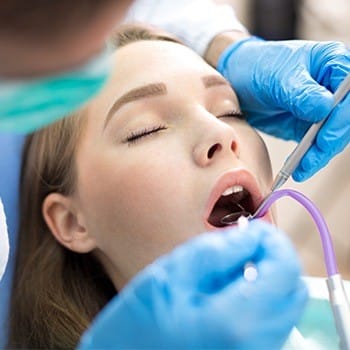
For children with extensive treatment needs and/or who have difficulty cooperating in the dental office, Dr. Barefield may recommend that your child’s procedure be performed under general anesthesia at Children’s Health Hospital. A skilled anesthesiologist will administer the general anesthesia and monitor your child throughout treatment. General anesthesia is safe and will enable your child to comfortably undergo complex or lengthy dental procedures. Dr. Donna is a skilled practitioner of hospital dentistry and will attend to your child’s needs with the utmost care, concern, and compassion. Dr. Wong also has extensive expertise and experience with hospital dentistry.
Patient Care After Sedation Dentistry
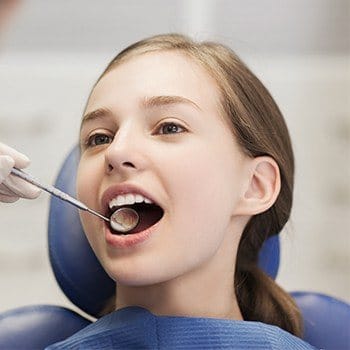
If your child is receiving a form of sedation other than nitrous oxide, there are a few things you should bear in mind after their visit. They will likely feel a bit drowsy, and some children may become nauseous, so they should only eat/drink clear liquids until they feel better. Plan to have them rest for the remainder of the day, and be sure to keep a close eye on them.
Children’s Sedation Dentistry FAQs
If your child is feeling anxious or worried about an upcoming appointment, our sedation dentist in Duncanville, Dr. Barefield, can provide the right method of sedation to keep them calm and relaxed throughout their appointment. Understanding this can be a worrisome process for parents, she has compiled some common questions asked by others that are designed to help address your concerns. However, should you not see your question listed below or wish to discuss the sedation process further, please do not hesitate to call our office and schedule an appointment with Dr. Barefield.
Is sedation dentistry safe?
It is not uncommon for your first question to be “Is it safe?” You’ll be pleased to learn that all our available sedation solutions are reliable and safe to use on children. No matter if it’s nitrous oxide, oral conscious sedation, or general anesthesia, Dr. Barefield and her team of experts are qualified to provide the right method of treatment for your little one, ensuring they remain completely safe and comfortable throughout their visit.
What can happen if my child is too afraid to visit the dentist?
As a parent, you hate to see your child express fear and anxiety when it comes to visiting the dentist. Naturally, you may want to simply reschedule their appointment for a later time in the hopes they will be more comfortable next time. Unfortunately, this can lead to serious oral health problems as more and more appointments are put off over time. As a result, your child can develop everything from tooth decay and cavities to gum disease, bad breath, and even a misaligned bite.
Catching problems early on will only prove more beneficial in the long run and help them avoid costlier, more time-consuming, and complex procedures. This is why it is best for a children’s dentist in Duncanville to discuss sedation options with you and your child, so they can get the care they need.
Will my child remember anything from their visit?
One of the added benefits of sedation dentistry is that in most cases, your child will be unable to recall their visit. Because many cases of dental anxiety stem from a traumatic experience, you can feel more at ease knowing that your little one will be less likely to walk away from their appointment feeling scared or upset. Instead, their visit will be much more comfortable because the effects of the sedation will not only help to keep them relaxed, but they will feel less anxious in the future when it comes to visiting the dentist.
Will my child be required to undergo any post-sedation recovery?
This is largely dependent upon the type of sedation they receive during their visit. With nitrous oxide, the effects wear off almost immediately, allowing them to resume normal activity after their appointment. With oral conscious sedation and/or general anesthesia, it will be necessary that your child rest the remainder of the day. You will need to stay close by to ensure they do not experience any negative side effects of the sedation as it begins to wear off.
Should you discover any issues developing, do not be afraid to call our office.